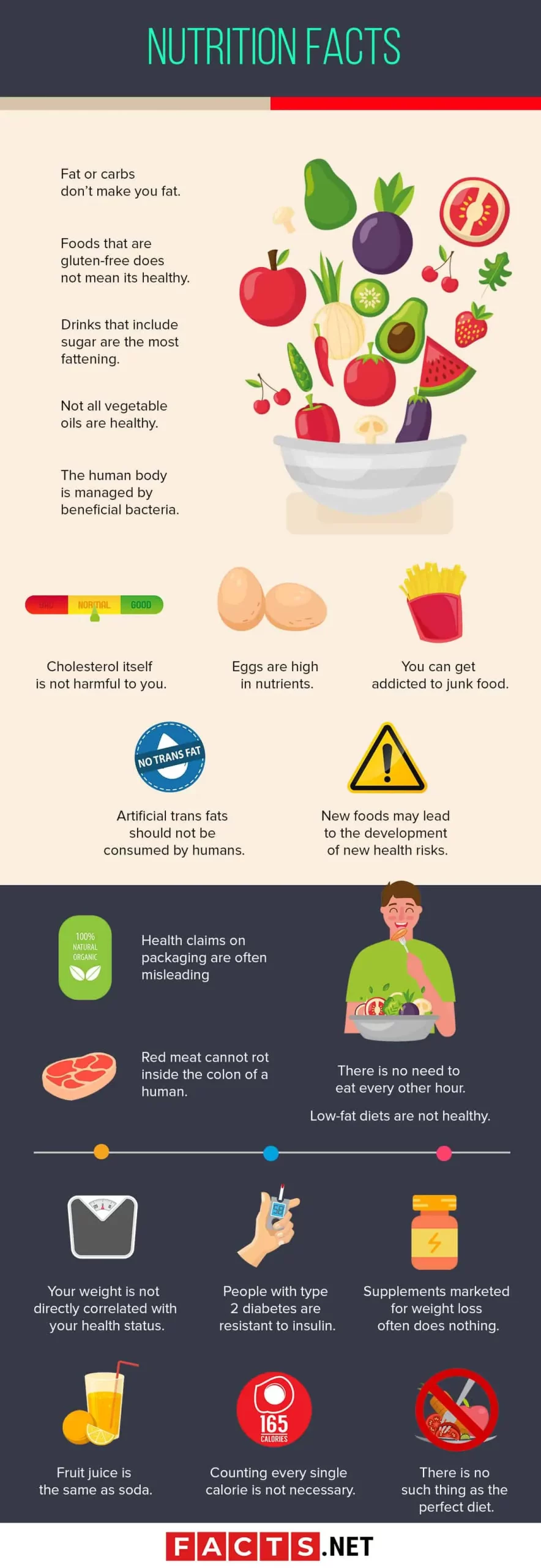Making sure you maintain good nutrition is a big part of maintaining a healthy lifestyle. However, with all the new diets and regimens out available to us, it can be intimidating for those starting out.
Here we present to you 100 nutrition facts that will help you achieve the healthy lifestyle you yearn for.
Nutrition Facts Infographics
Fat or carbs don’t make you fat.
Here’s the first on our list of nutrition facts. The main factor blamed for obesity is often fat because it contains more calories per gram than protein and carbs. However, this couldn’t be further from the truth. These factors are not the only things to consider when deciding on a diet. While both fat and carbs can be fattening, being able to balance this with the rest of the diet can result in positive weight loss.
Foods that are gluten-free does not mean its healthy.
The trend for organic and gluten-free food is continuously rising. However, what most people do not realize is that this is not necessarily always the healthiest option. Junk food can also be made with gluten-free and organic products.
Drinks that include sugar are the most fattening.
The intake of excess sugar can cause great harm to your health. When consuming it in liquid form, the human brain cannot register the amount of calories you are drinking. This leads you to eat more just so the brain can register your calorie intake.
Not all vegetable oils are healthy.
Soybean, sunflower, and corn oil all contain large amounts of omega-6 fatty acids which increases the chances of low-grade inflammation in the body. Oils with this fatty acid may also contribute to oxidative stress which helps heart disease form.
The human body is managed by beneficial bacteria.
Research has found that there are more bacteria in our intestines than there are human cells in our bodies. The ratio of bacteria to human cells is 10 to 1. Over the years, scientists have found that these bacteria provide us with many benefits with regards to our health. When we eat, it fuels the bacteria in our bodies to help regulate weight loss and gain and even how the brain functions.
Artificial trans fats should not be consumed by humans.
Here are some nutrition facts about trans fats. Trans fats are unhealthy and link to the increase in heart disease. Luckily, the Food and Drug Administration has banned trans fats as of June 2018 and will no longer be distributed after 2020.
Cholesterol itself is not harmful to you.
The main determinant for heart disease is not cholesterol itself, but rather the type of lipoproteins that carry it around your body. For the majority, dietary cholesterol has little to no effect on lipoprotein levels.
